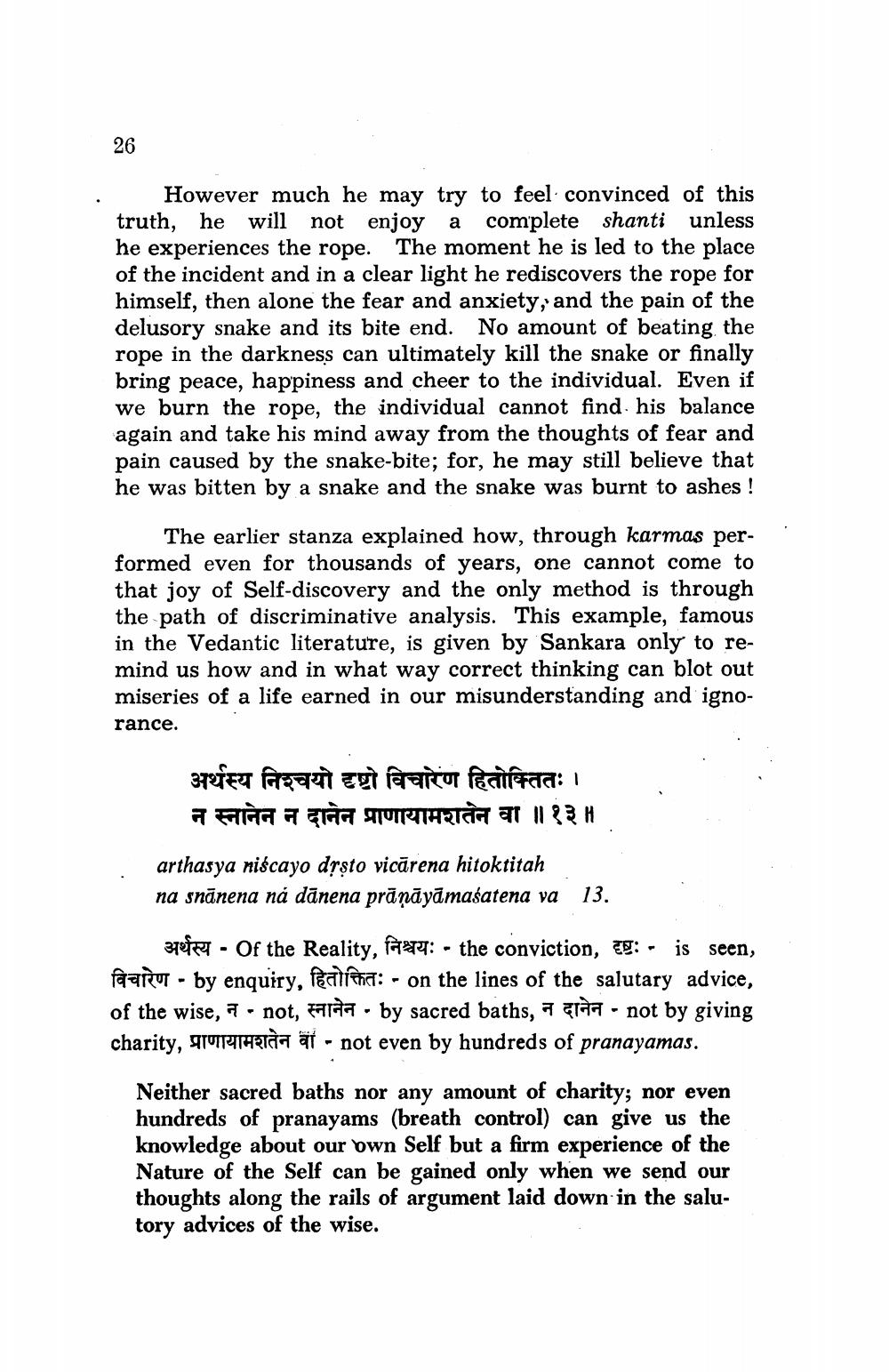________________
26
However much he may try to feel convinced of this truth, he will not enjoy a complete shanti unless he experiences the rope. The moment he is led to the place of the incident and in a clear light he rediscovers the rope for himself, then alone the fear and anxiety, and the pain of the delusory snake and its bite end. No amount of beating the rope in the darkness can ultimately kill the snake or finally bring peace, happiness and cheer to the individual. Even if we burn the rope, the individual cannot find his balance again and take his mind away from the thoughts of fear and pain caused by the snake bite; for, he may still believe that he was bitten by a snake and the snake was burnt to ashes !
The earlier stanza explained how, through karmas performed even for thousands of years, one cannot come to that joy of Self-discovery and the only method is through the path of discriminative analysis. This example, famous in the Vedantic literature, is given by Sankara only to remind us how and in what way correct thinking can blot out miseries of a life earned in our misunderstanding and ignorance.
अर्थस्य निश्चयो दृष्टो विचारेण हितोक्तितः।
न स्नानेन न दानेन प्राणायामशतेन वा ॥१३॥ arthasya niớcayo dȚsto vicārena hitoktitah na snānena na dānena prāņāyāmasatena va 13.
Steffen - Of the Reality, latera: - the conviction, : - is seen, faarur - by enquiry, fealita: - on the lines of the salutary advice, of the wise, 77 - not, Faida by sacred baths, 7 gran not by giving charity, GTORITARIAT at - not even by hundreds of pranayamas.
Neither sacred baths nor any amount of charity; nor even hundreds of pranayams (breath control) can give us the knowledge about our bwn Self but a firm experience of the Nature of the Self can be gained only when we send our thoughts along the rails of argument laid down in the salutory advices of the wise.




